After the 44-day war in Artsakh, Askeran became a border settlement. Almost three years later, despite all the difficulties and obstacles, people continue not only to live and work, but also to support the active and creative women of the region with various initiatives.
Alla Arzumanyan is 59 years old and has lived in Askeran all her life. She works as the head of the State Protection Service of the Historical Environment. After the 44-day war, she explained that 126 historical monuments from Askeran went under the control of Azerbaijan. In many cases, the State Protection Service cannot approach the monuments that are under Artsakh’s control, because they are in the observation post of Azerbaijani soldiers. However, even in these conditions, the organization continues to work on the preservation of the remaining monuments.
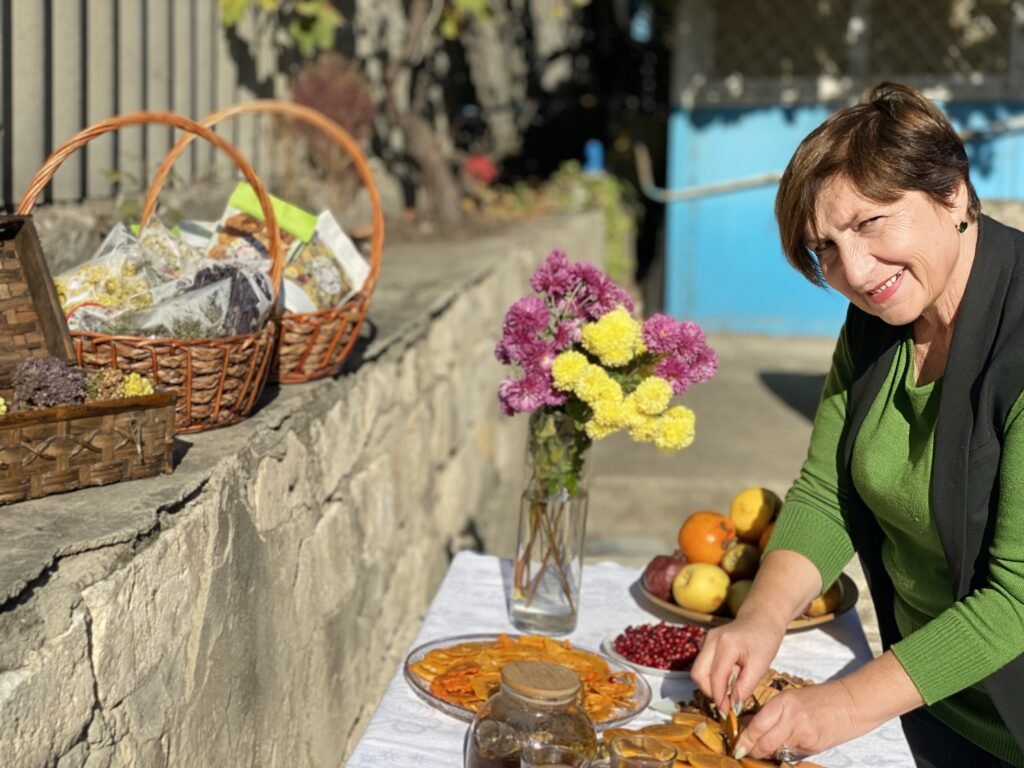
During the first Artsakh war, Arzumanyan worked in a wine factory. At the start of the Artsakh liberation movement, she worked as a nurse and continued fighting in the Askeran tank regiment until the end of the war. Then, she worked as a caterer and opened an open-air café in her backyard, one of the first cafes in those years. It was more of a meeting place for young people and women, where they gathered around with a cup of tea and discussed various topics.
That’s how Mayrik was born. It lived up to its name, because like a mother, it gathered not only locals but also tourists. Herbal teas with fruit additives, fruit and vegetable chips and fruit candies became a source of small business.
The 44-day war changed everything. The absence of tourists impacted this small business. In addition to Mayrik, Arzumanyan, along with other enterprising women, opened the Askeran Development Center and began to cooperate with various nonprofit organizations to organize movie screenings, discussions, meetings with psychologists and professional courses in the field of agriculture. It turned out that women are interested in agricultural work as a source of income, so they began to grow crops, which they had not done before.
All of these women maintained their regular jobs, but it was difficult to support their families with those salaries. Ruzanna is a teacher, who engaged in poultry farming with her mother-in-law, who, by the way, is the oldest woman in the center at 78 years old, but continues to work. Marine bakes traditional jingalov hats. Maria is a florist. Narine works in beekeeping. Zarina breeds pigs, and Lilia pickles jars of vegetables.
One of the beneficiaries of the Askeran Development Center is Mira Hayrapetyan, a 63-year-old elementary school teacher, who has worked in the field of education for 45 years. Her two sons and daughter are serving in the Artsakh Armed Forces. “I serve the motherland with a pen, my children with a weapon,” says Hayrapetyan proudly. Although she loves her students very much, she enjoys working with the soil more. She has a 3,000-meter plot, a vegetable garden and an orchard, from which she collects up to a ton of persimmons a year. Also, she makes jingalov hats, pickles and dry foods. During the war, she also collected persimmons under the bombings and baked bread with other women to send to combat positions. “I have no right to worry,” she says. “I don’t allow myself, because I have three children in positions. The most important thing is to live here so that Artsakh does not become depopulated. That will be our biggest mission,” she added firmly.
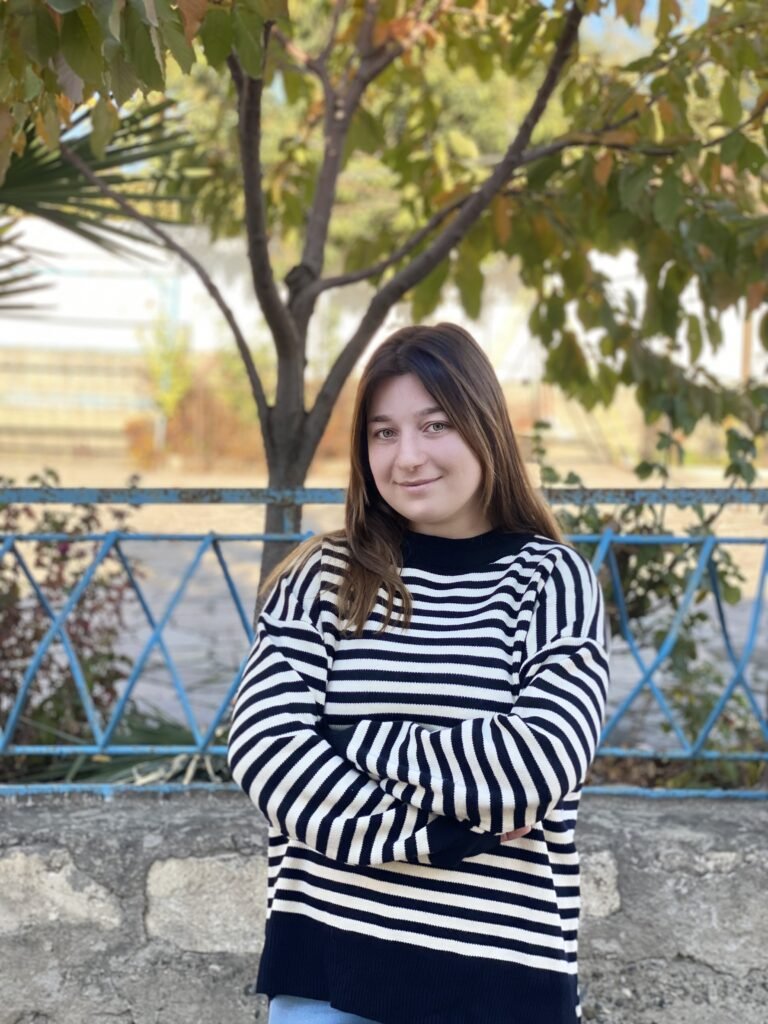
Lana Hambardzumyan is the youngest participant of the center. She is a 20-year-old journalism student from Ughtasar. After the 44-day war, Ughtasar and seven other communities from the Askeran district were occupied by Azerbaijan. Now Hambardzumyan lives with her family in the city of Askeran. In addition to her studies, she actively participates in community development initiatives. She is a member of the Union of Refugees for Justice and has organized events for children in the villages.
For these women, it has been difficult to adapt to the post-war reality. These gatherings and discussions help them return to their former lives. “I noticed that they are already discussing the relationship between the bride and the mother-in-law,” jokes Arzumanyan, as if they are coming back to life. But, she says, “We live for today. All our plans begin with the expressions ‘If we survive’ and ‘If there is peace.’”
During the ongoing blockade of Artsakh, these women continue to struggle, not only to provide for their families, but also to support the needy residents of the Askeran community.
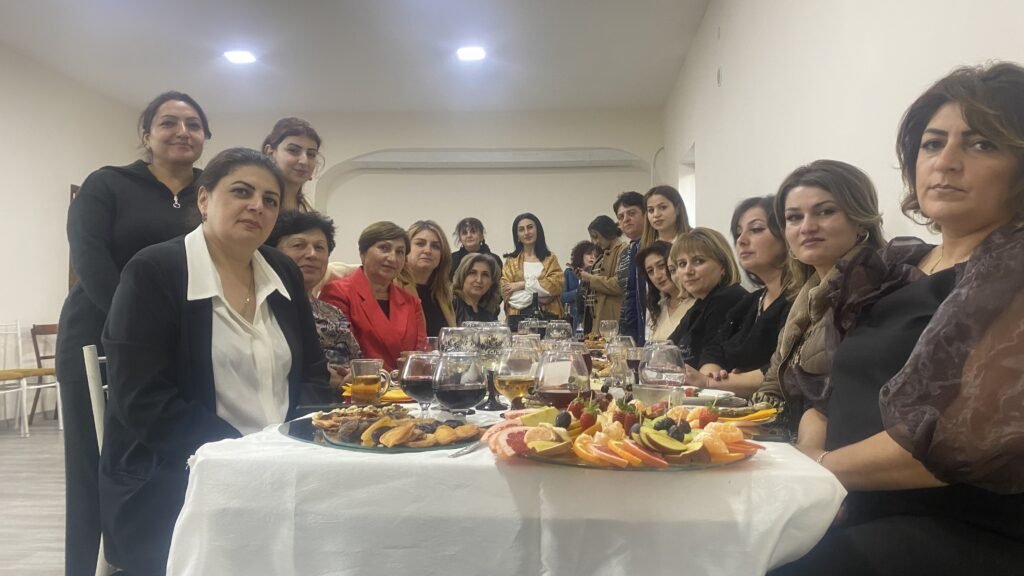
The Askeran Development Center began collecting food and warm clothes to distribute to the most needy families. Arzumanyan says it was during the blockade that they realized the importance and relevance of the training organized by the center and the programs implemented. For instance, the harvest of Hayrapetyan’s vegetable garden and the eggs obtained as a result of Ruzanna’s poultry farming have played a vital role in meeting the needs of community members facing severe food shortages.
The Center has planned a series of weekend activities for children this month. Hayrapetyan will teach the children how to make traditional jingalov hats (flattened bread stuffed with greens). Arzumanyan will teach them how to make dolma. They have also planned a meeting with a child psychologist, who, through art therapy will try to distract the children from personal and emotional problems in the conditions of a blockade that has been going on for almost three months.
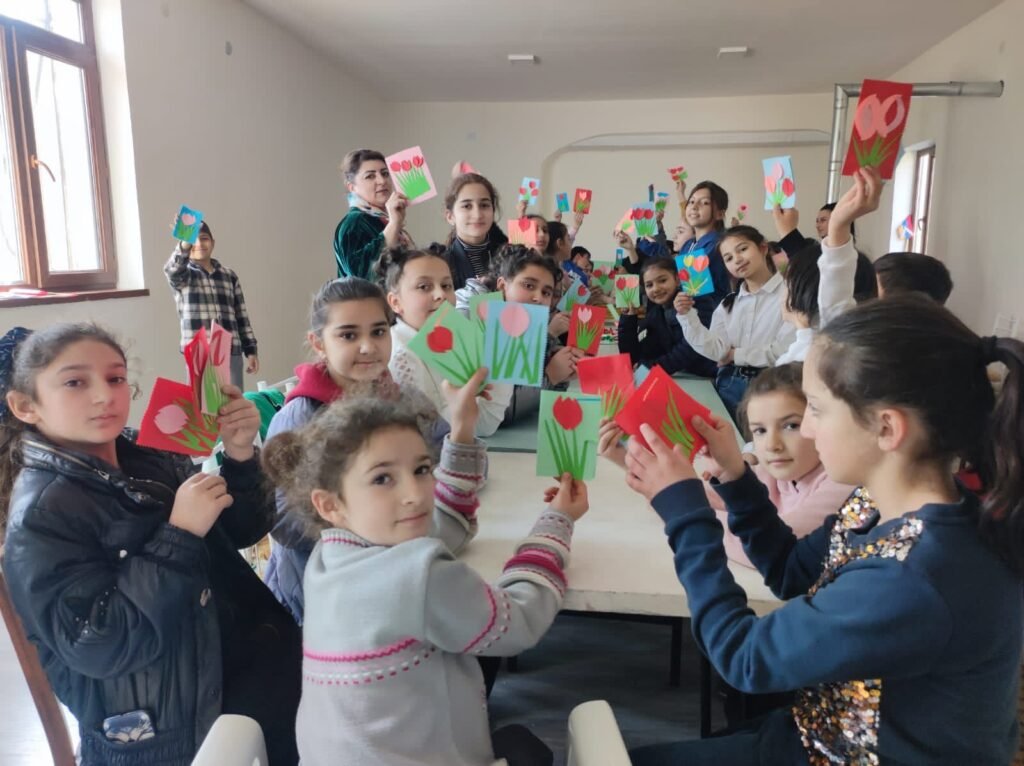
In preparation for International Women’s Day on March 8, the center organized the children to make holiday cards to congratulate their mothers and grandmothers. At the same time, Hambardzumyan and Snezhana Tamrazyan are trying to organize free events for the children of the community with their cartoon characters. The purpose of these initiatives is to use the resources of the center’s women to shield the children from the reality of the siege.
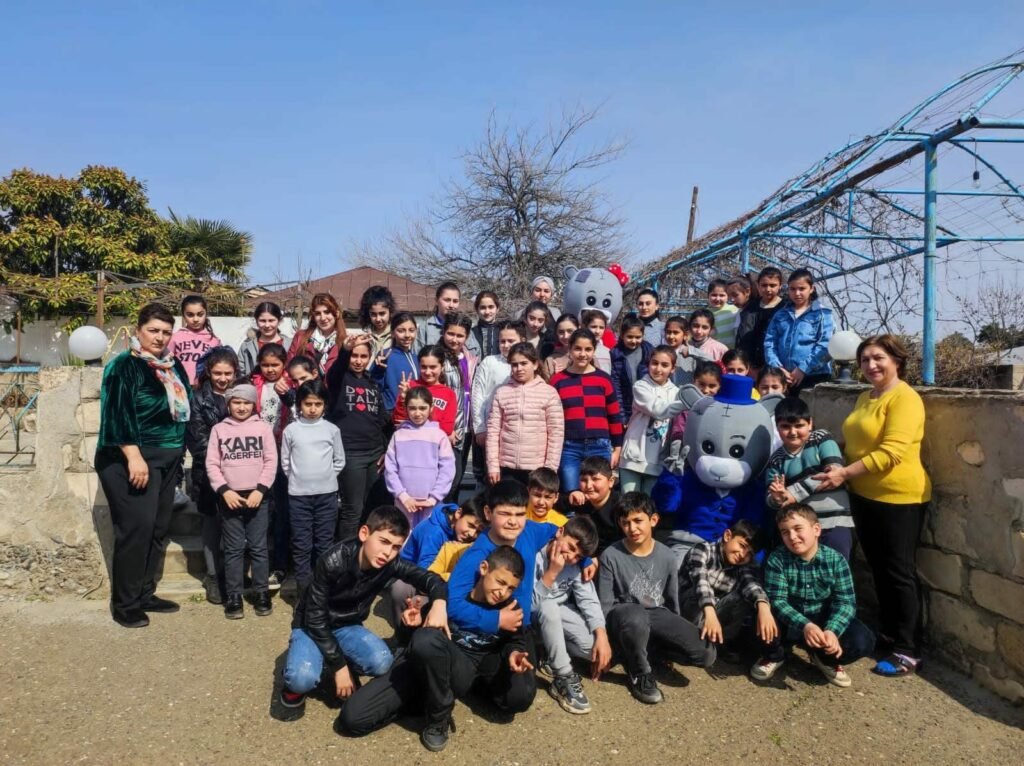



Be the first to comment